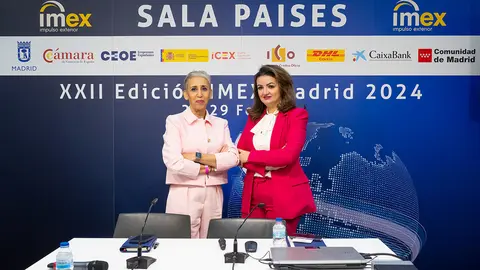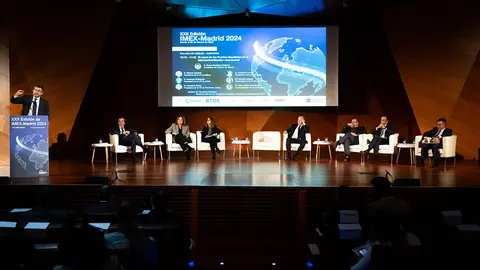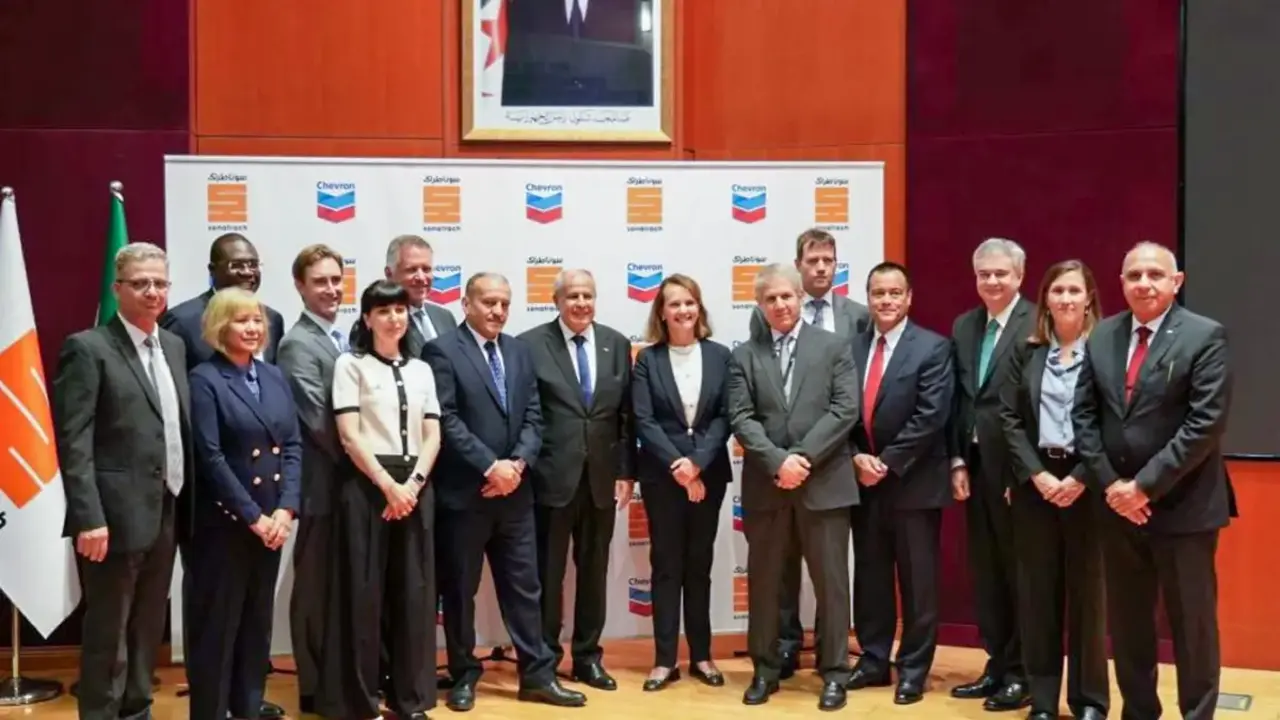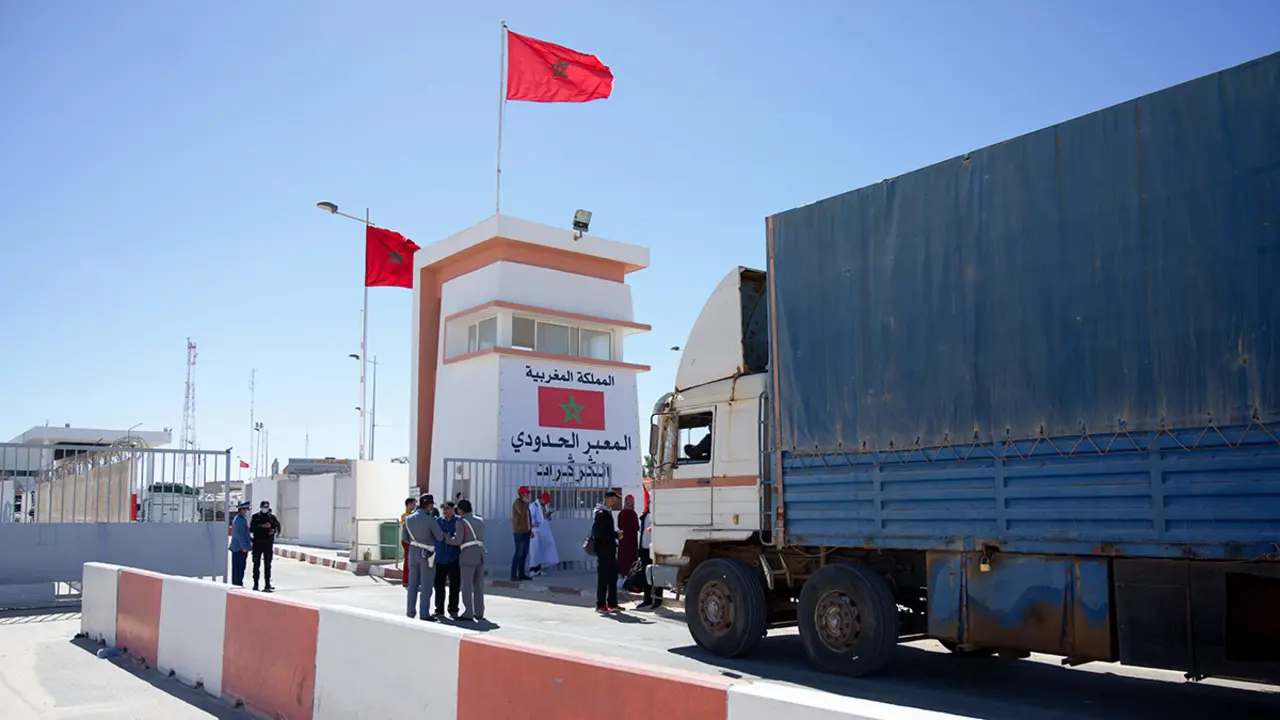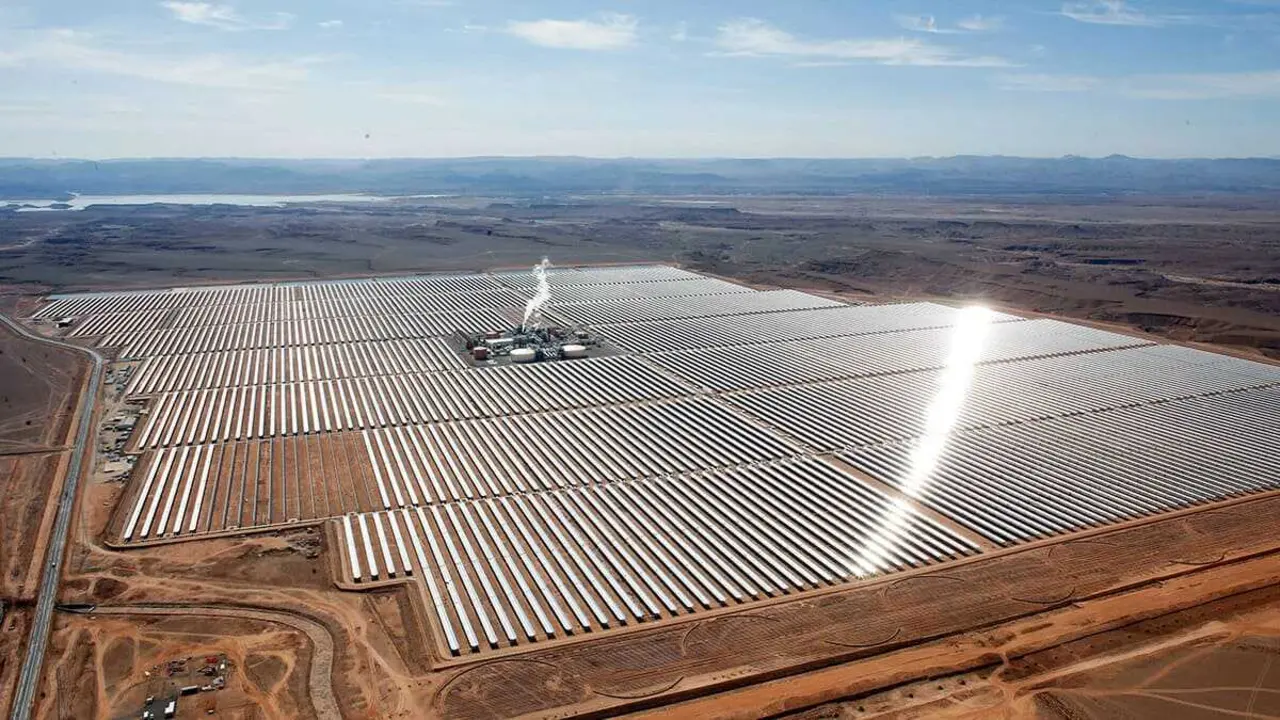98% of ICO financing operations in 2023 went to SMEs
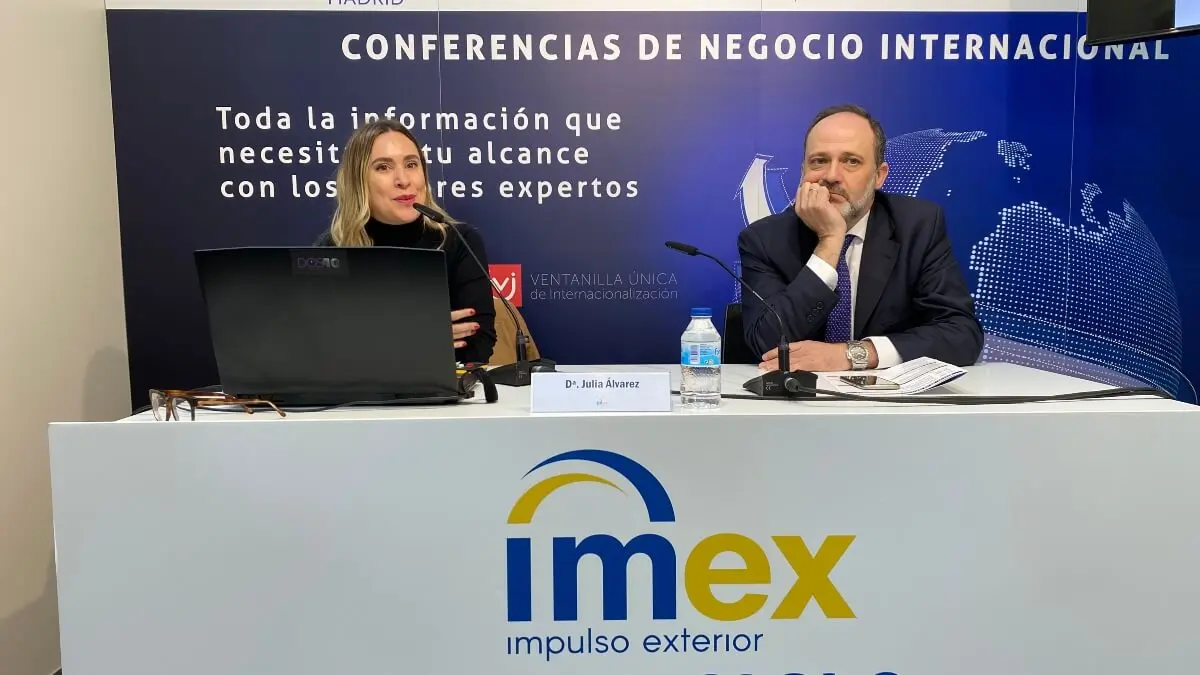
The third and final day of the IMEX Madrid trade fair, held at the Palacio de Cibeles, included numerous talks and round tables aimed at informing companies about the tools they have at their disposal to tackle their internationalisation.
- The triple function of the ICO
- Lines of mediation
- Agreements with private Banks
- International channel
This was the aim of the conference "ICO financing instruments to support internationalisation", given by Julia Álvarez, from the ICO's Mediation Area with Financial Entities.
Álvarez clarified that "the ICO does not draw on the General State Budget: its basic role as a public bank is to go to the capital markets to finance itself, issuing debt (bonds, in this case) which, as they are backed by the Spanish state, represent a competitive advantage, because they allow it to obtain lower prices and offer higher interest rates".
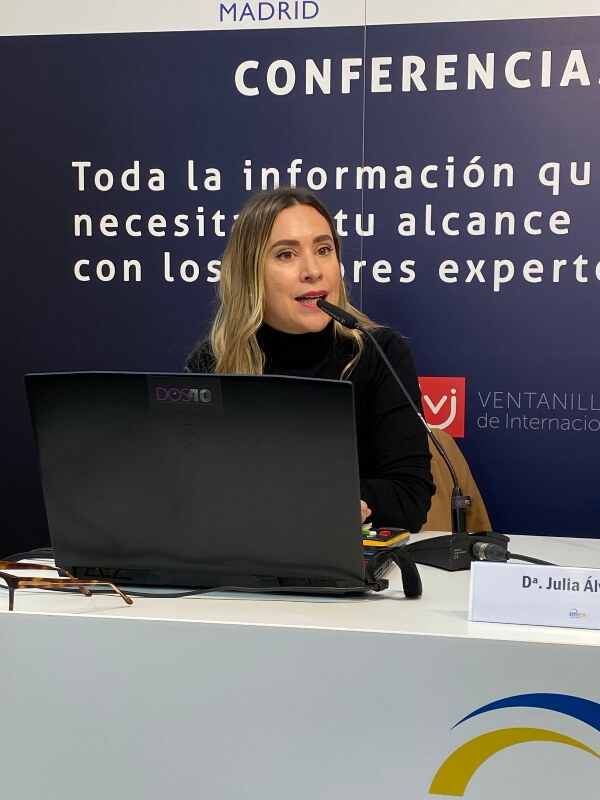
The triple function of the ICO
The head of ICO Mediation explained the triple function of this body, a public business entity attached to the Ministry of Economy: "on the one hand, it acts as a financial agent of the state, distributing FIEN and FONPRODE funds, or the guarantees that were essential during the Covid and Ukraine crises; on the other, it is a financial instrument of economic policy, collaborating with the administration to mobilise resources, especially European funds; and thirdly, it is a public bank, which operates with funds raised in the capital markets".
Lines of mediation
As Julia Álvarez explained, the ICO has mediation lines in two blocks: one, aimed at covering the needs of companies within Spain, and another that includes specific products for companies that want to invest abroad.
"We have the ICO International line, which was launched in 1993, aimed at covering all kinds of business needs: investments, liquidity needs, supplies, staff costs, rentals, purchases... Up to 12.5 million euros are available, with long terms of up to 20 years, with a three-year grace period," he explained.
To this is added the ICO Exportadores line, aimed at short-term needs, to provide liquidity, also with a maximum of 12.5 million euros.
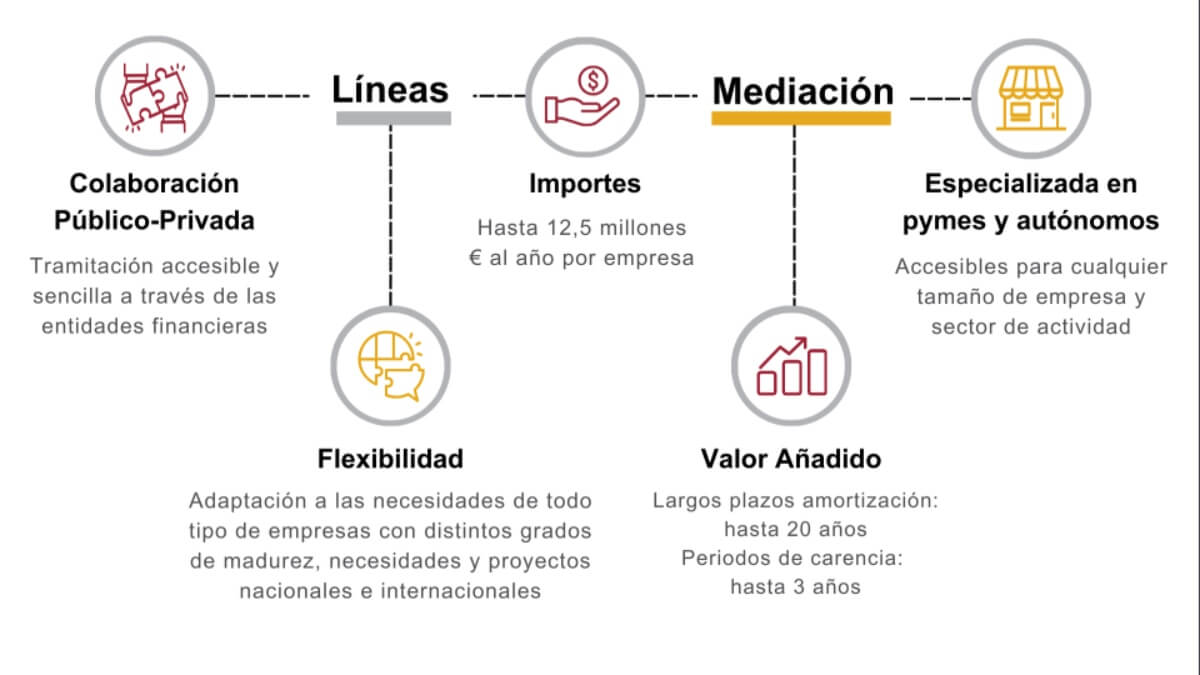
Agreements with private Banks
So that all interested companies can access these lines of financing, the ICO has signed collaboration agreements with numerous Spanish private financial institutions, in which it establishes the maximum interest rate applicable to the companies that gain access.
In this way, customers can go to their usual branch office and apply for the line that best suits their needs, facilitating processing through the banks' branch networks.
According to Álvarez, "the advantages of these lines of mediation are multiple: great flexibility in terms of company size and sectors, and very easy processing, as no more documentation is requested than that required by the bank itself".
The proof that these financing formulas are very attractive for small and medium-sized companies is that, during 2023, 60% of the operations carried out were with micro-companies (less than ten employees), and 98% with SMEs.
International channel
Finally, the head of the ICO referred to the institution's international channel, which replicates the public-private financing scheme in the countries where the companies wish to set up, working with local banks.
"There are no limits based on the size of the company or the sector; there is no established maximum or minimum size. All that is required is that there is what we call 'Spanish interest', that is, that the company has part of the Spanish share capital; that it purchases goods produced by a Spanish company; or that it subcontracts a project to a Spanish company. To date, we have signed more than 37 agreements with 20 partners, mobilising more than 4 billion euros," he concluded.

